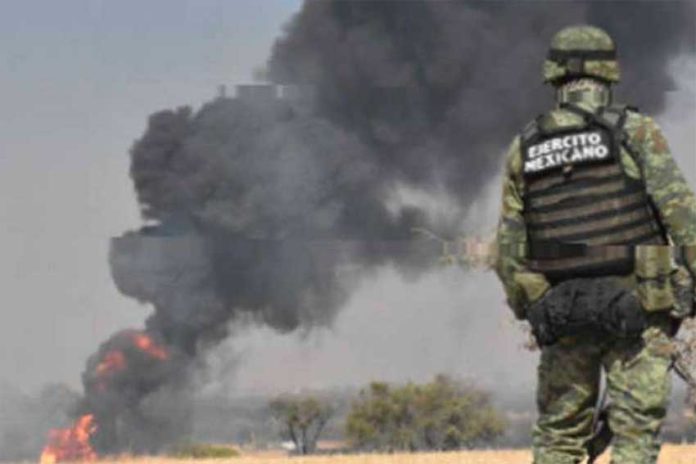A project to pave over petroleum pipelines in Guanajuato as a means to combat the state’s massive fuel theft problem has been labeled “stupid and dangerous” by a union leader.
Juan Carlos Chávez González, president of the National Democratic Alliance of Petroleum Workers, made the comment in response to Guanajuato Governor Miguel Márquez’s announcement last week that state oil company Pemex would resume an abandoned project to cover the state’s fuel ducts with concrete.
Chávez said that project would be costly, charging that it would practically imply “building highways over the ducts” and that it would be dangerous because the concrete-covered pipelines could not be maintained.
He questioned why Pemex didn’t choose instead to use cutting-edge technology employed in other parts of the world, such as England and the Middle East, to protect its pipelines.
Such technology, Chávez said, can detect movement above the pipelines, alerting authorities to the presence of thieves.
According to a report published by the official news agency Notimex in January 2016, “a system to detect leaks and illegal taps on petroleum pipelines in real time” has been developed by the Mexican Institute of Petroleum and educational institutes including the National Autonomous University (UNAM).
But Chávez charged that Pemex has shown no interest in protecting its pipelines, which had entered into a state of “abandonment” due to neglect.
In the 1970s and ‘80s, he said, helicopter patrols of many of the major petroleum pipelines were carried out every three days but they stopped when former president Carlos Salinas de Gortari took office at the end of 1988.
Authorities detected 865 illegal taps on pipelines in Guanajuato in the first half of the year, a period in which violent crime increased significantly in the state.
When 59 people were killed in the space of just five days in May, state Attorney General Carlos Zamarripa said 85% of the homicides were related “in one way or another” to petroleum theft.
Governor Márquez said that Pemex CEO Carlos Treviño had committed to paving over its pipelines in the state during a meeting at which he expressed his concern about the rising levels of fuel theft and associated violence.
However, he added that he didn’t have any details about when the work might start.
Governor-elect Diego Sinhué Rodríguez Vallejo, who easily retained the governorship for the National Action Party (PAN), pledged last month that he would change course in fighting crime by adopting a new security strategy that would include strengthening municipal police forces and creating a financial intelligence agency to track flows of money related to petroleum theft.
Treviño said in April that the crime costs Pemex 30 billion pesos (US $1.6 billion) a year in lost revenue and there is evidence that some of Mexico’s notorious drug cartels have diversified into the lucrative trade of black market fuel.
Despite coordinated efforts to combat the crime, including the use of the military, the number of pipeline taps detected has continued to increase.
Meanwhile, another form of petroleum theft is appearing in three states. The president of the Tlaxcala branch of the National Chamber for Industrial Transformation (Canacintra) said in that state as well as Puebla and Veracruz thieves are now also targeting gas tanker trucks and trucks transporting gas cylinders.
José Luis Baltazar Santiesteban charged that the crime is a reflection of the insecurity in the notoriously dangerous region known as the Red Triangle.
Source: El Sol de Puebla (sp), El Sol de Tlaxcala (sp)
